Even the wrong question points to the truth. When, in June 1995, Paris’s eastern suburb of Noisy-le-Grand began rioting after the death of a 21-year-old French-Arab in a police chase, politicians and the media asked if a film released the previous week, La Haine, had sparked the mayhem. Not police brutality, nor the social conditions in “Noisy-la-Haine”, as one newspaper put it – the poverty and boredom that may have led Belkacem Belhabib to steal the motorbike that he fatally crashed into a set of traffic lights.
La Haine, which premiered 25 years ago this week, asked the right questions. Its then 27-year-old writer-director Mathieu Kassovitz had been driven to make it by outrage over a similar incident to Belhabib: the accidental shooting of 17-year-old Zairian immigrant Makomé M’Bowole in a police station in April 1993. “I was in my car, not too far away, when I heard about it on the radio, so I parked and went to join in with the protests. I was so mad at the whole situation,” says Kassovitz today. This was just one of more than 300 recorded bavures (“slip-ups”) committed by French police since 1981.
Kassovitz started writing his script the same day as that shooting: 24 hours in the life of a “black-blanc-beur” (black-white-Arab) tricolour of wideboys living on a Paris sink estate. The characters ended up taking the actors’ first names: Vinz (Vincent Cassel), the Jewish hothead who, after a riot, finds a cop’s Smith & Wesson and vows to take revenge for the latest police beating; Hubert (Koundé), the ruminative black boxer and small-time dealer who tries to get his friend to drop the bluster; Saïd (Taghmaoui), the Arab joker who mediates between them. The trio loll on their turf, then head into central Paris, oblivious to approaching catastrophe.
But La Haine was not dry sermonising, it was a proper coup de cinéma. Converted to elegiac black-and-white in post-production, quoting brass-balled Hollywood movies such as Taxi Driver and Scarface, it more than matched US counterparts such as Boyz N the Hood. Kassovitz believed in the hip-hop mantra of “edutainment” – where social awareness and style met. Watching the dazzling shot that begins in a DJ’s bedroom, then arcs out over the concrete expanses as he beat-juggles KRS-One, French rap group NTM and Édith Piaf, it’s clear he aced it on both counts.
Kassovitz’s film did well around the world, quickly achieving cult-cinema status. But it was in its home country where its impact was most indelible. The first French banlieue (outer-city) film to receive any serious media attention, it essentially created a new genre in French cinema, and widened the scope of characters represented on screen to the country’s immigrant underclass. It had touched a raw nerve, something beyond even police violence: the vast gulf of incomprehension between these concrete bastions packed with the neglected immigrant community and white mainstream France; the sense both parties were ignoring a burning fuse, telling themselves as per the film’s famous motto: “Jusqu’ici tout va bien.” (“So far so good … ”)
The outraged reaction to the film showed it had hit home. It won best director at Cannes in 1995, but the police – believing it to be a polemic against them – turned their backs on the team when providing a ceremonial guard at the festival. In the context of the Noisy-le-Grand riots and that summer’s strikes against prime minister Alain Juppé’s austerity measures, its anti-authoritarian swagger was a red rag. Kassovitz was accused of playing up a bad boy image, smoking dope during one TV appearance. He in turn complained about a media unable to connect with the deeper issues. He recalls making journalists from a celebrity magazine cry when he rounded on them for publishing a special booklet on how to speak in banlieue slang. “The media made us stars and didn’t take care of the subject of the film,” he says now. “They asked me questions where I said: ‘Don’t ask me that, go to the projects and talk to the guys there.’ But they didn’t want to talk to them.”
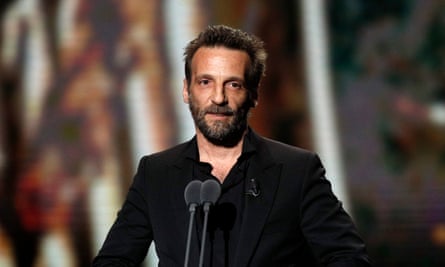
Now 52, the director has a feisty reputation in France, spraying copious F-bombs in fluent English in our interview. But he had another, rather sweet, motive for making La Haine. “I just wanted to make it easy for my father to understand what was going on in the projects,” he says. “He didn’t get why I was hanging out with black guys: ‘You’re a little Jewish guy, what are you doing?’” Dad was the Hungary-born director Peter Kassovitz, his mum the film editor Chantal Rémy; Kassovitz grew up in central Paris, but gravitated towards the banlieue as a teen thanks to his involvement in the city’s nascent B-boy scene. A small network of record shops and parties were a mixing ground for all social classes, including middle-class kids such as Kassovitz and Cassel, whose younger brother Mathias was a founder member of NTM’s rivals, Assassin.
So Kassovitz knew his subject matter. Taghmaoui also grew up in the banlieues, while Koundé was from the immigrant class, born in France, though raised in Benin. Filmed on location in the cité (estate) of Les Muguets in Chanteloup-les-Vignes, 30km to the north-west of Paris, La Haine met with broad approval from the people it depicted. “It was the first time we saw ourselves represented on screen and in a film with proper cinematic means,” says Aurélie Cardin, who grew up in Aubervilliers, at the heart of Paris’s totemic “neuf-trois” district and who later founded the CinéBanlieue film festival. “It was our life, but larger than life. The Franco-Algerians, Franco-Africans felt themselves represented and that they mattered.”
Its director, though, admits La Haine was not solely targeted at the banlieues, but also at a middle-class audience apt to be seduced by its poetic realism: “I wasn’t talking to the guys from the projects – I was talking about the guys from the projects.” He brushes off those cité residents who felt misrepresented by the film’s focus on the seamy side of life there: “Fuck those guys who didn’t like it. It’s a creation, so you have to have a point of view.”
It wasn’t quite the first film to reckon with urban deprivation in France’s multicultural ghettos: that honour possibly goes to Mehdi Charef’s 1985 film Le Thé Au Harem D’Archimède. But Cardin says that La Haine remains “mythic” for people there: “It’s still legendary. It’s stayed in the memory of a whole generation and carried on circulating.” It spearheaded a first, largely forgotten, wave of banlieue films, including Raï and Héxagone, that opened the door for the genre to flourish and legitimised French ghetto culture. Key figures associated with this bloom went on to make their own cité-set works. Kourtrajmé, the artistic collective that enjoyed Cassel and Kassovitz’s support, have in turn given a leg-up to Ladj Ly, who made this year’s Oscar-nominated Les Misérables. It’s clear from that film how La Haine’s verve and radicalism has remained a touchstone, even as banlieue film commercialised and broadened. On one side there’s a cottage industry of action flicks and comedies, such as the Banlieue 13 franchise and Neuilly Sa Mère! (a sort-of French Fresh Prince of Bel-Air), while, on the other, directors such as Céline Sciamma (Girlhood) and Houda Benyamina (Divines) have ensured banlieue women weren’t excluded.
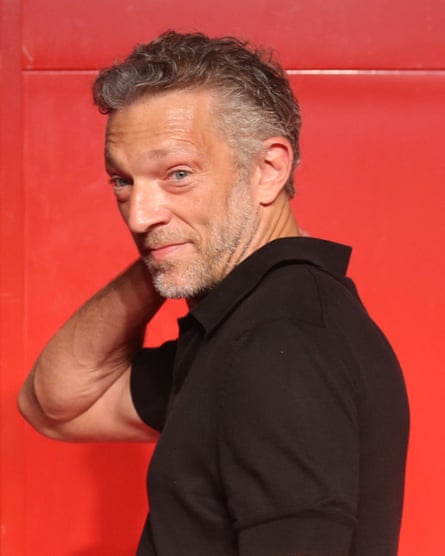
Yet, the subsequent careers of La Haine’s main trio casts some doubt over the real-world effects of this diversity push. Taghmaoui carved out a solid international career as a blockbuster bit-player, and Koundé has been largely restricted to theatre and TV soaps. It was the white man on the screen, Cassel, who went on to become the most famous French actor of his generation. Kassovitz, meanwhile, has juggled acting and directing – including a pair of Hollywood features and an unlikely swerve into heartthrob territory when he co-starred in Amélie. But he has struggled to bring his militant convictions to the screen with the same force.
This lack of broader political impact, especially where les cités are concerned, is the weight round La Haine’s neck. On the surface, little has changed there in 25 years – and in racist attitudes towards their Arab and black residents. Police “slip-ups” still occur with depressing regularity, and riots still break out, most notably in the nationwide 2005 unrest. Kassovitz is scathing about the recent discovery of brutal French policing tactics by the gilet jaunes (yellow vests) – whose base is primarily white and working-class. “Now they understand. The riot police aren’t racist, they’re riot police. If you’re part of a riot, they will kick your ass. And all of a sudden, the gilet jaunes realise: ‘Oh shit, it’s not ’cos [the banlieue rioters] were black, it’s because they were fighting for something.’ But, back then, it was: ‘You can do that to the black kids, but not to us.’ And now they go crazy. Fuck them!” He concludes: “You know which people aren’t part of the gilets jaunes? People from the cités. Because they understand.”
He says it isn’t surprising an underpaid, undertrained police force often resorts to violence when policing trouble spots; that they are only to blame for their refusal to root out “black sheep” in their own ranks. But he is adamant that his film made it harder for malpractice to go unnoticed. “If we didn’t do what we did, it would be duck-hunting season. We created cop-watch. We got people on their toes, so that when they see a cop in the street [mistreating people], they say: ‘You cannot do that.’”
Aurélie Cardin has one misgiving about La Haine. “You know how it’s going to end: badly. That determinism is hammered in: you live like this and you’ll always live like this. That revolt wasn’t necessary because we’d lost before we’d begun. It was hard for those who were living it. We said to ourselves: what are we supposed to do?” She sees more hope in Les Misérables, which despite a shared air of fatalism, ends on an open question. Maybe it’s also the return of a direct political rallying cry from a genre whose recent advances have been in terms of who is represented on screen.
Kassovitz isn’t optimistic about a politician – or a single film – rectifying the underlying social conditions any time soon. “You don’t change society in 25 years,” he says. “You need society to go all the way and collapse, and then you change it. You can’t change a machine that is perfect: capitalism. It’s not good, but it’s perfect. It’s working.” He plans to turn La Haine into a stage musical, or “urban opera”, as he puts it; he originally envisioned the film’s little social vignettes as rap songs, and this is the form they will take on stage. But he is still holding firm on not making a true sequel; impossible, he says, as its three heroes are “dead or in prison”.
The coronavirus has laid bare once again the social inequality in the banlieues: between 1 March and 20 April, for example, the death rate in the area of Seine-Saint-Denis was up 130% on the same period in 2019, compared to a rise of 27% for France as a whole. Kassovitz sees the pandemic as one last chance to restructure society more fairly, to break with “Jusqu’ici tout va bien”. “Either people are going to say: ‘We can’t go back to living like that.’ Or they’re going to go back to that. And fuck them, if they want to go to the slaughterhouse without doing anything.” As in his most celebrated work, he sets the countdown. “It’s the last call for our society. If we fuck this up, I give us 50 years max. Fifty horrible years.”
La Haine will be rereleased by the BFI later this year
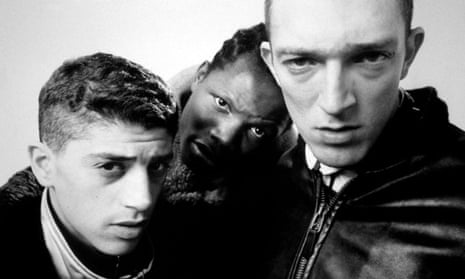

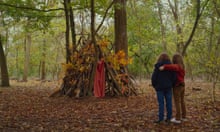
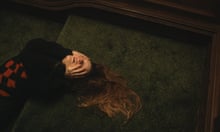



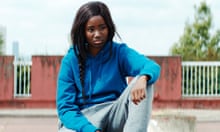

Comments (…)
Sign in or create your Guardian account to join the discussion